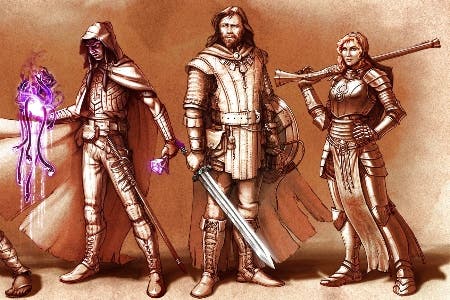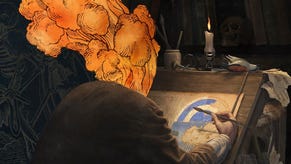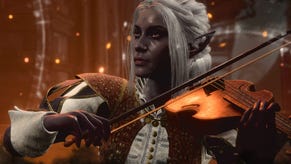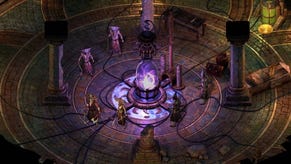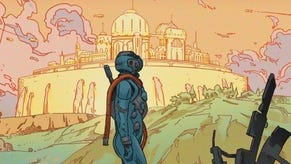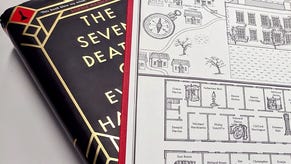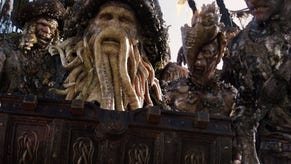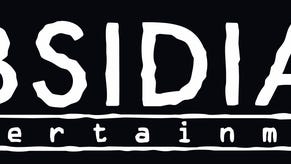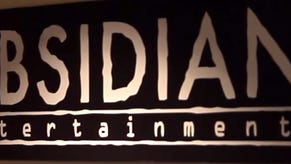A Project Eternity recap: what $4 million has funded
Spring 2014 isn't that far away, is it?
Grand total update: $4,163,208 (Kickstarter $3,986,929, PayPal $176,279). 15 mega dungeon levels confirmed.
Obsidian Entertainment, a studio formed from the ashes of Black Isle Studios, plied its trade making RPG sequels to other company's IP (Knights of the Old Republic 2, Neverwinter Nights 2, Fallout: New Vegas, Dungeon Siege 3).
Obsidian's attempt at an original IP, spy-themed RPG Alpha Protocol, was overlooked. (How current THQ project South Park: The Stick of Truth will turn out we'll have to wait until March 2013 to find out.)
Where would Obsidian go next? Back to its roots; on 14th September - after much teasing and excitement - Obsidian announced a Kickstarter drive to fund an old-school RPG inspired by Planescape: Torment, Baldur's Gate and Icewind Dale.
The game is Project Eternity, a working title. And it went on to become the most funded video game ever on Kickstarter, raising nearly $4 million dollars - over, if you count PayPal donations (grand total at time of writing: $4,127,028). Incidentally, PayPal donations are still open for a few more hours.
Obsidian originally sought $1.1 million to fund Project Eternity's development. Needless to say that many stretch goals have been and gone.
So what exactly has $4 million funded?
An isometric role-playing game inspired by this:
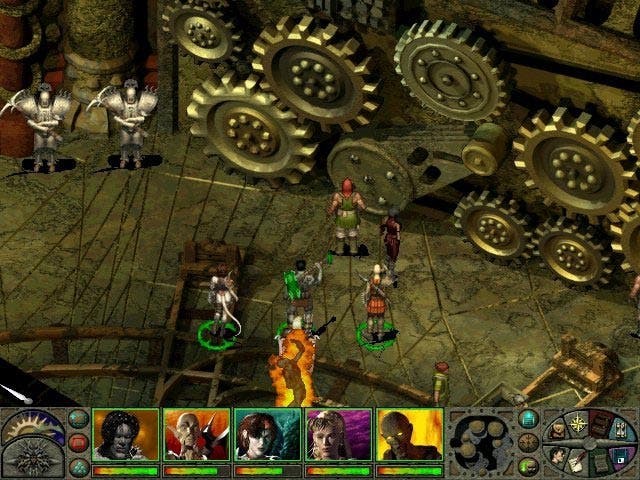
But brought up to date with the Unity engine so the environments look like this:
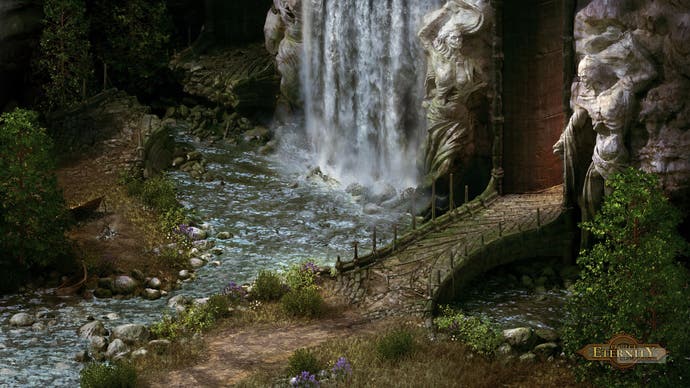
Backgrounds will be pre-rendered 2D images while characters and some props will be 3D. Environments will be animated: trees will sway, birds will fly, butterflies will flutter, water will move, waterfalls will cascade, etc. It will be a bit like The Temple of Elemental Evil.
The world of Project Eternity is, broadly, medieval fantasy, though there are very early firearms available. At the centre of everything are souls. These power abilities and magic and shape people's outlook on the world. The common perception is that when people die their soul comes back in another body. And people do die: there's relatively little magical intervention for illness and disease. From souls comes the notion of past lives, and awakened souls - which are treated with caution - remember their past lives.
The body a soul is reincarnated into depends on your religion, some people believe. Others don't, though, and these people play what's referred to as the reincarnation lottery.
Remember that while $4 million broke crowd-funding records, it's not anywhere near the budget of a modern Elder Scrolls or Dragon Age game. Obsidian will scale development to match its budget.
Project Eternity will be heavy on textual storytelling and dialogue. Remember that while $4 million broke crowd-funding records, it's not anywhere near the budget of a modern Elder Scrolls or Dragon Age game. Obsidian will scale development to match its budget.
Project Eternity has 'real-time with pause' combat, so it's not quite turn-based but you can pretty much play it that way if you like. Combat will be party-based: you'll rely on the complimentary abilities of your group to win the fight, rather than solo prowess.
That means you'll be collecting companions and uncovering their stories as you quest. An Adventurer's Hall has been added where you can fit out your party with mercenaries of varying class types. This gives the opportunity to build a group not dictated by the story and the companions offered in it.
There are 11 classes:
- Barbarians, who are fierce, aggressive, undisciplined and vulnerable to exhaustion.
- Ciphers, who are effectively sorcerers: magic users who tap directly into soul power to cast spells. They can control other souls.
- Fighters, who are versatile combatants that draw on soul power to perform superhuman feats.
- Priests, who fight on the front lines and use powerful prayers and miracles bestowed by the gods they worship.
- Rogues, who pop up when least expected to do their damage. They're as often well respected members of the world as skulking, low-life thieves.
- Wizards, the classic spell casters who use tomes to perform a powerful array of magic.
- Paladins, the spiritual fighters who bolster groups and lead from the front. They're good in a team but weak alone.
- Chanters, a bard-like class who use poems and stories to produce magic that plays out over time. Their spells don't rival a wizard's, but they can chant while doing other things.
- Rangers, Monks and Druids aren't detailed.
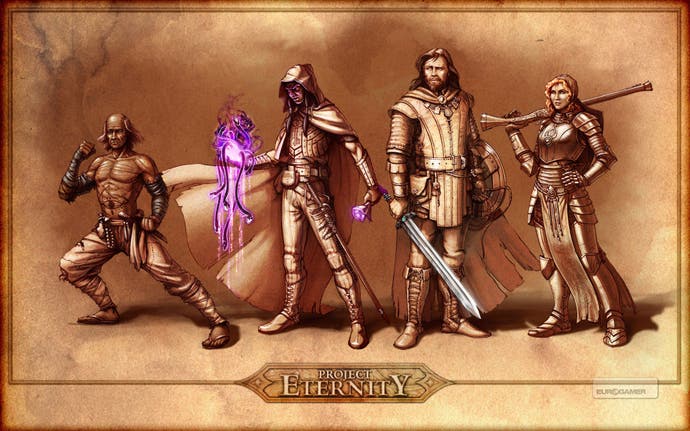
There are six races: humans, dwarves, elves, orlan (bit like hobbits), godlike (bit like the plane-touched in D&D: the tieflings, aasimar and genasi) and aumaua (bigger than humans and presumably humanoid).
There are combat skills and non-combat skills, and they use separate resources so they don't obstruct one another. Levelling will generally be slow paced and no upper limit has been revealed.
During combat you'll be concerned with two things: Health and Stamina. Deplete Stamina either through use or being attacked and you fall unconscious. You can be revived and your regain Stamina both naturally and through abilities. Health sounds like it's lost slowly over time when you're away from a resting spot. If you lose all Health you're maimed (in Standard mode) or killed (in Expert mode - and as an option in Standard mode). In Expert mode there's no way back from death.
Intelligence and Charisma will affect speech as well as ability modifiers (presumably Intelligence helps wizards and Charisma helps chanters and maybe ciphers). If you're thick and dull as dishwater, so too will your speech be.
You'll get a house as a player and also be given the opportunity to command a stronghold and its surrounding lands. Strongholds and their lands can be customised, offer special quests and provide "light" strategic gameplay between your adventures. Obsidian offered similar in Neverwinter Nights 2.
There will be crafting an enchanting.
There's a mega dungeon called The Endless Paths that has 13 levels and is growing (depends on backer number and Obsidian Facebook Likes).
There will be two massive cities.
There will be mod support and Obsidian will do all it can to encourage this.
Obsidian's targeting a spring 2014 PC release for Project Eternity on GOG (DRM-free) and Steam. A Linux version is confirmed. A Mac version will be released on Steam, though there's no DRM-free partner yet.
Obsidian's targeting a spring 2014 PC release for Project Eternity on GOG (DRM-free) and Steam. A Linux version is confirmed. A Mac version will be released on Steam, though there's no DRM-free partner yet.
A Project Eternity expansion has already been confirmed for release six months later. The expansion won't be funded via Kickstarter. Presumably funds raised by selling Project Eternity will fund it.
Project Eternity will be released in Russian, French, German, Spanish and English. Localisation tools will be released for people who want to translate the game into other languages.
There will be live instrumentation and in-game commentary from developers (if you want it).
Project Eternity will be led by Josh Sawyer, lead designer of Fallout: New Vegas, and programmer Adam Brennecke. Tim Cain, creator of Fallout, and Chris Avellone, lead designer of Planescape: Torment will be key members of the team. George Ziets, creative lead on Neverwinter Nights 2: Mask of the Betrayer and Dungeon Siege 3 has signed on to help.
A Project Eternity Wiki has sprung up, and the official Obsidian forums are a great place to keep up with new information. There's incidental detail on lore and some NPCs on the Project Eternity Kickstarter page as well, plus videos that go deeper in detail.
